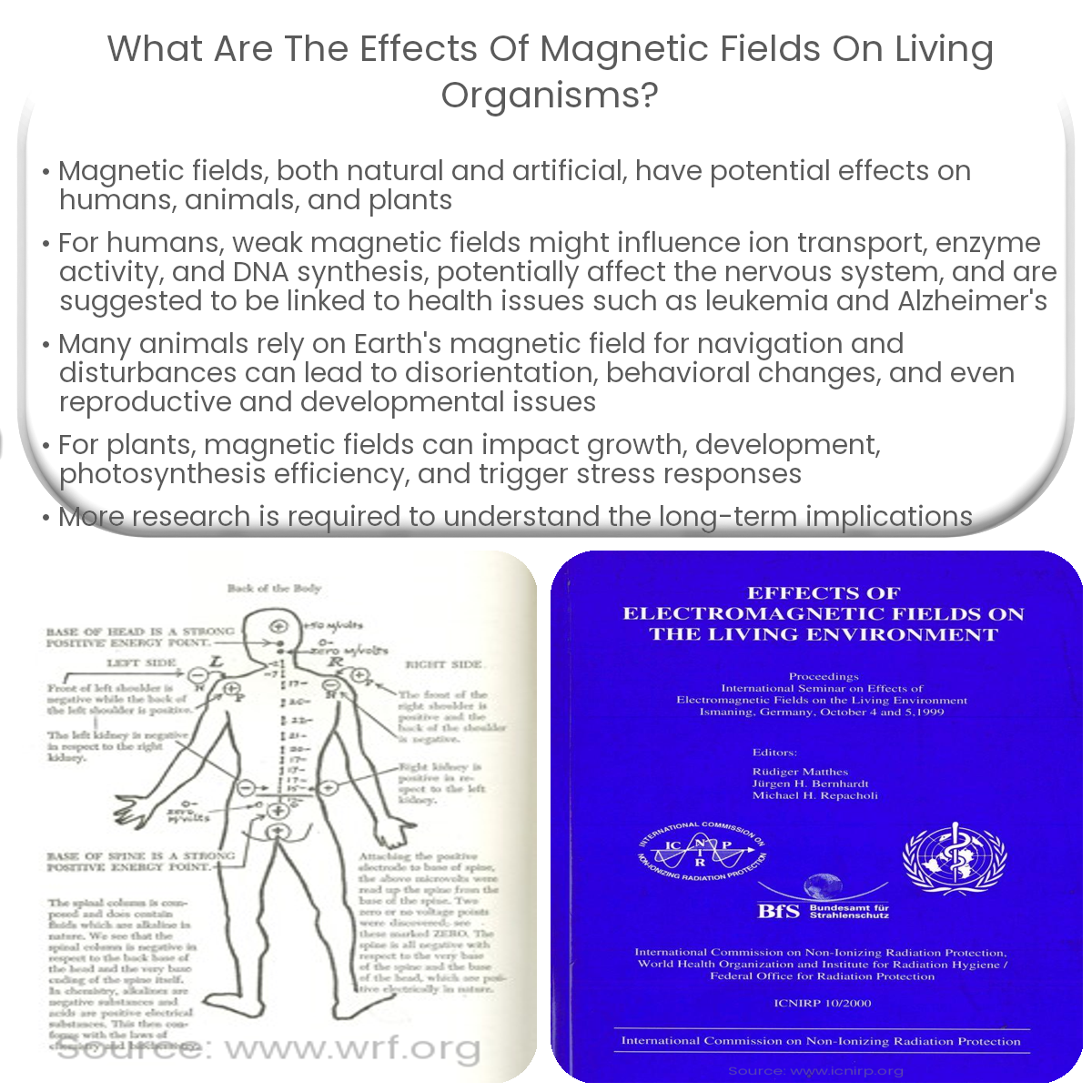Magnetic fields can affect cellular processes, nervous systems, behavior, growth, development, and overall health in humans, animals, and plants.
Effects of Magnetic Fields on Living Organisms
From the Earth’s magnetic field to artificial sources, living organisms are exposed to various magnetic fields on a daily basis. This article aims to explore the potential effects of these magnetic fields on living organisms, with a focus on humans, animals, and plants.
1. Humans
-
Cellular Level: Studies suggest that weak magnetic fields can cause changes in ion transport, enzyme activity, and DNA synthesis. However, the long-term consequences of these changes are still unclear.
-
Nervous System: Some research indicates that magnetic fields can affect the nervous system, potentially causing changes in brain activity, sleep patterns, and mood.
-
Health Concerns: Although a definitive link has not been established, some studies have suggested associations between exposure to magnetic fields and health issues such as leukemia, brain tumors, and Alzheimer’s disease.
2. Animals
-
Magnetoreception: Many animals, including birds, turtles, and fish, rely on Earth’s magnetic field for navigation. Disruptions to the natural magnetic field may cause these animals to become disoriented and negatively impact their ability to migrate.
-
Behavioral Changes: Research has shown that exposure to artificial magnetic fields can lead to behavioral changes in animals such as bees and rats, including altered foraging behavior and decreased cognitive function.
-
Reproductive and Developmental Effects: Some studies have indicated that exposure to magnetic fields can result in reduced fertility, developmental abnormalities, and changes in the growth and development of offspring in certain animal species.
3. Plants
-
Growth and Development: Magnetic fields have been found to affect the growth, development, and yield of certain plant species. In some cases, exposure to magnetic fields can enhance growth, while in other cases it may inhibit it.
-
Photosynthesis: Research suggests that magnetic fields can impact the efficiency of photosynthesis, with both positive and negative effects observed depending on the strength and direction of the field.
-
Stress Response: Exposure to magnetic fields may trigger stress responses in plants, leading to the production of reactive oxygen species (ROS1) and the activation of antioxidant systems.
In conclusion, magnetic fields have the potential to impact living organisms in various ways, including cellular processes, behavior, and overall health. Further research is needed to fully understand the long-term consequences and implications of exposure to magnetic fields on humans, animals, and plants.


